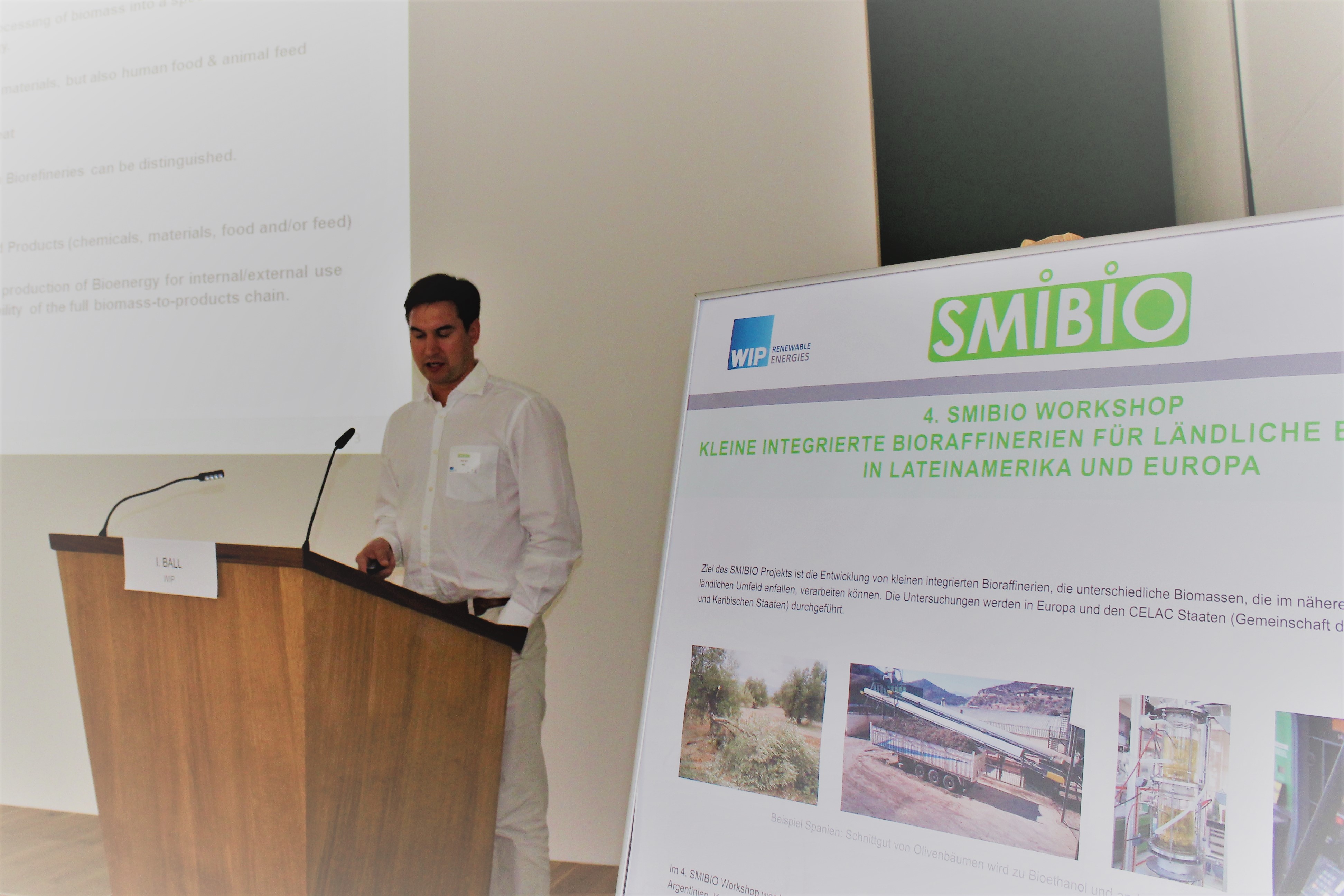Ingo Ball: Green Biorefineries in Europe

Ingo Ball (WIP, Germany) presented green biorefineries in Europe
The next presentation was given by Ingo Ball, who is a project manager in the unit Bioenergy & Bioeconomy at WIP Renewable Energies and was about Green Biorefineries in Europe.
First Mr Ball showed how a green biorefinery (GBR) is classified within the classification system of IEA Bioenergy Task 42. In general, a green biorefinery processes fresh wet biomass, such as grass, clover, alfalfa or immature cereals. First processing of wet biomass involves dewatering (e.g. screw press) to obtain two separate intermediates, a nutrient-rich organic solution (press juice) and a fibre-rich lignocellulosic press cake. Both intermediates are starting points for various valorization pathways.
The organic solution (press juice) contains valuable compounds, such as carbohydrates, proteins, free amino acids, organic acids, minerals, hormones and enzymes depending on the used feedstock (fresh biomass or silage). Silage juice has already been demonstrated as feedstock for bio-chemicals and fuels production. Lactic acid and its derivatives as well as proteins, amino acids, bioethanol and energy via AD are the most favorable end-products.
The press cake fibres can be used as green feed pellets, processed to fibre products (e.g. bio composites or insulation material) or used as raw material for other platforms (e.g. C6 and C5, syngas and lignin).
In the biorefinery context, the concept of a green biorefinery makes it a product driven biorefinery.
Mr Ball then considered the composition of grass and gave an overview about the basic processes that happen, once the grass is cut.
Mr Ball showed then the existing green biorefinery approaches in Europe and stated that most of the companies in that sector are new on the market, so the long-term success needs to be proven first. The concepts presented included the technical approaches and available mass balances of Biowert (Germany, production of bio composites and insulation material), NewFoss (the Netherlands, grass fibres for paper production), Grassa (the Netherlands, protein production) and Biofabrik (production of fertilizer and amino acids).
As an orientation help for decision making, then the so-called value pyramid was presented which basically says that energy has the lowest value per mass input and nutrition and health & lifestyle products the highest.
Concluding, Mr Ball presented an outlook about green biorefinery research in Europe. At the moment, in Denmark the most activity can be detected. Yet also in the Netherlands, in Germany and in Finland research on the topic of green biorefineries is still ongoing. The last slides showed a green biorefinery concept of Aarhus University in Denmark, which might be the next operating green biorefinery in Europe.



